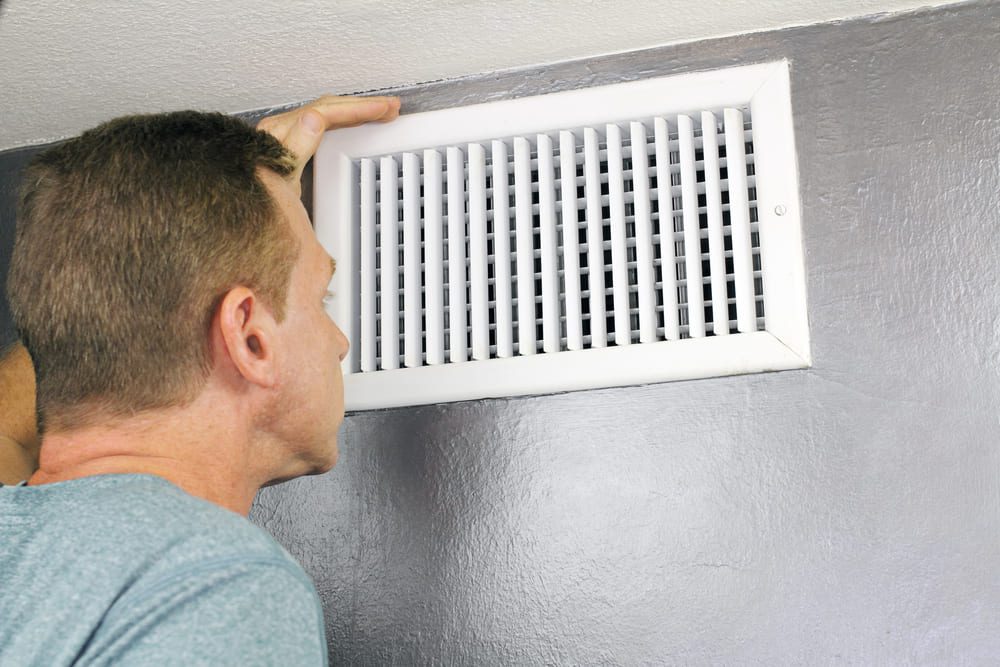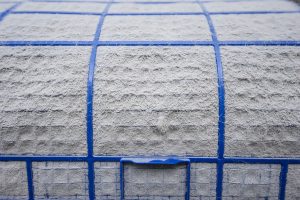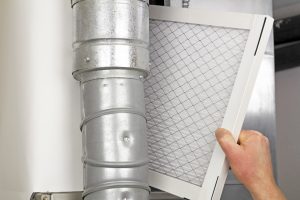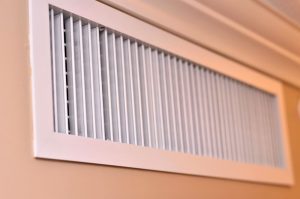
Indoor air quality is often disregarded. However, it can present a danger to our health. Serious health effects of poor air quality include problems like heart conditions, cognitive impairments, and even cancer. Continue reading to learn about the health risks of poor indoor air quality.
Table of Contents
The experts at Fenwick Heating and Air will guide us through this conversation, providing valuable insights and professional perspectives. Let’s unravel the significance of clean and healthy indoor environments for your well-being.

The Importance of Indoor Air Quality
Good indoor air quality is essential for our well-being. It’s something we often overlook. The air we breathe inside our homes has an impact on our health, and it can even affect our daily expenses. Let’s take a closer look.
Issues Poor Indoor Air Quality Causes
The perils of indoor air pollutants are not just confined to their existence. Understanding their harmful effects is equally important.
HVAC Issues Due to Poor Indoor Air Quality
Excessive pollutants in the air impact our health and the functioning of our HVAC systems. HVAC systems work hard when there is an abundance of contaminants in the air, thus becoming dirty faster. This creates two issues: reduced airflow caused by air filters and the release of dust, mold, and other allergens back into our living areas.
Furthermore, pests can create nests in your HVAC ducts, contributing additional pollutants to your indoor air, which ultimately gets inhaled by you and your family.
Higher Utility Bills
The extra strain on your HVAC system from bad indoor air quality doesn’t just create health risks. It also leads to financial implications. If your HVAC system works harder, it will consume energy, resulting in higher utility bills.

What Contributes to Poor Indoor Air Quality
Various factors can influence the air quality within your home or workplace. Each of these contributes to your health and well-being. Let’s examine them closely.
- Mold and Allergens: Substances like mold, pollen, dust mites, and pet dander have an impact on one’s well-being and comfort for individuals with allergies. Although they might not always provoke discomfort, they can subtly influence your health by disrupting sleep patterns, causing respiratory issues, and leading to other health complications.
- Particulates: Particulate pollution refers to tiny airborne particles like dust, soot, smoke, and other harmful substances that can infiltrate the air inside your living space. These particles can enter your home through various means, including outdoor air infiltration, inadequate sealing, and filtration, or they can settle on surfaces such as furniture, clothing, and items. It’s important to note that certain specific particulates, classified as Group 1 carcinogens by the International Agency for Research on Cancer (IARC), are known to pose health risks when exposed to over an extended period. These risks can include respiratory and cardiovascular issues, as well as potential DNA mutations. However, it’s essential to recognize that not all particulates are classified as carcinogens, and their health effects can vary depending on the specific substances and levels of exposure.
- Gasses: Indoor air can sometimes contain substances like radon, carbon monoxide, formaldehyde, and nitrogen dioxide. VOC exposure can lead to headaches, fatigue, trouble concentrating, eye irritation, nausea, respiratory irritation, and other health problems. Lung cancer can be caused by prolonged exposure to high levels of radon, a naturally occurring radioactive gas that can enter homes through cracks in the foundation. Inhaling nitrogen dioxide and carbon monoxide, on the other hand, can be fatal due to their immediate health risks when inhaled.
- Cigarettes and Other Smells: Many people are aware of the consequences of smoking and exposure to secondhand smoke. However, most people don’t think twice about how cigarette smoke contaminates the air. It is crucial to avoid smoking indoors, especially if there are children, elderly individuals, or people with conditions living in the house. Additionally, it’s important to note that cooking odors and aerosols also affect air quality.

Indoor Air Quality Statistics
We spend 93% of our time indoors, which means safe indoor air quality should be high on our priority list. It may be surprising, but indoor air quality can be two to five times worse than in the air.
We often think of air pollution as something that happens outdoors. Mold, dust, gasses, and particles can greatly affect air quality. In fact, the EPA has ranked unhealthy indoor air quality as one of the top five environmental public health risks.
Many Americans suffer from allergies and asthma. It is believed that these are health effects of indoor air pollution and can be exacerbated based on the level of air quality. Additionally, exposure to air pollutants has been linked to debilitating health issues such as lung cancer and heart problems.
Short-Term Health Effects
Although certain health effects of poor air quality like lung cancer and heart disease, can have long-term and severe consequences, several short-term and less severe health issues can arise. These poor indoor air quality symptoms are often confused with ailments like allergies, stress, colds, or the flu.
These symptoms include:
- Coughing and Sneezing
- Watery Eyes
- Fatigue
- Dizziness
- Headaches
- Upper Respiratory Congestion
While these symptoms may seem minor, they should not be ignored as they can indicate poor indoor air quality. It’s essential to regularly check the air quality in your home and take necessary measures, such as improving ventilation or using air purifiers, to safeguard a healthier living environment.
Long-Term Health Effects
Poor indoor air quality exposure can lead to a range of long-term health effects. While some poor indoor air quality symptoms may appear immediately, others may not surface until years after exposure or after repeated periods of exposure.
Some of the potential long-term health effects include:
- Rashes
- Fever and Chills
- Tachycardia
- Lethargy
- Nausea
- Myalgia
- Eye Irritation
HVAC Issues
The primary worry about subpar indoor air quality is its potential health hazards. However, it can also adversely affect your HVAC system. Particulate matter poses a significant problem as it can block filters, gather within air ducts, and stick to coils or other system parts. This usually interferes with airflow and heat transfer, gradually reducing your system’s efficiency and jeopardizing its dependability. Regular maintenance might alleviate the problem, but it won’t address the root cause if the air quality continues to be poor.

What Can You Do?
Indoor air quality should never be taken lightly. Many individuals exposed to these severe conditions remain unaware of the detrimental impacts until they suffer from them. Deciding to enhance your air quality is the initial move toward avoiding adverse health consequences. Below are a few measures you can implement immediately:
- Maintain cleanliness in your home frequently.
- Allow natural air circulation whenever possible.
- Regularly replace your air filters, install air purifiers, and ensure HVAC maintenance.
- Install air purifiers to help in purifying the air inside your home.
- HVAC maintenance by certified professionals can improve air quality and system efficiency.
The urgency of maintaining healthy indoor air quality cannot be overstated. It’s more than just the comfort of your living or working environment. It’s a matter of your health and well-being. You can improve the air quality in your indoor spaces by taking simple preventive measures such as regular cleaning, allowing fresh air circulation, timely changing of air filters, and proper HVAC maintenance. If you need help or advice on enhancing your home’s indoor air quality, contact Fenwick Home Services

